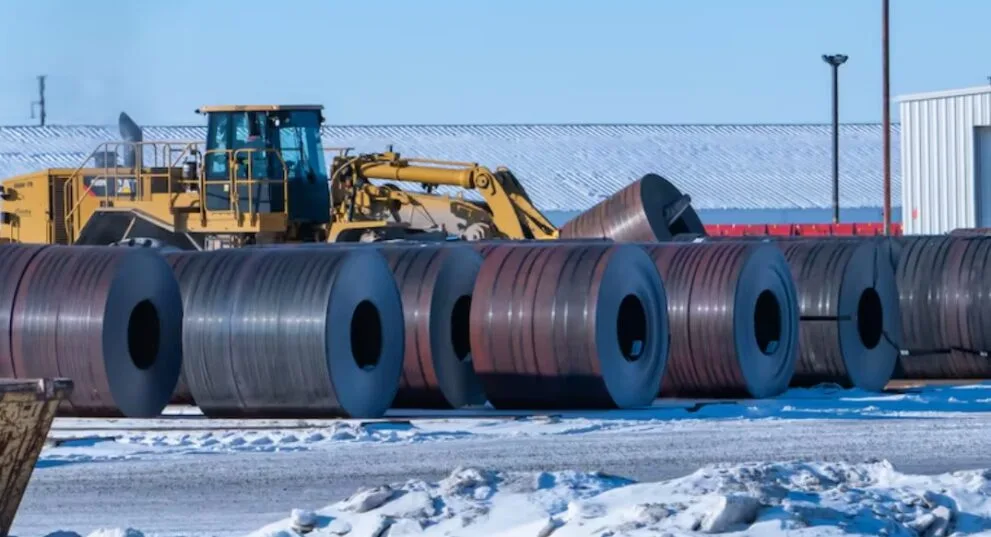President Donald Trump has announced a 25% import duty on all steel and aluminum entering the United States, marking a significant escalation of current trade restrictions.
These tariffs, which will raise the costs associated with importing these metals into the country, have been introduced despite warnings of potential retaliatory measures from political leaders in Canada—America’s primary supplier of these materials—and other nations.
Businesses in the United States that rely on these imports have expressed their apprehensions; however, Trump maintains that his strategy will enhance domestic production capabilities.
He emphasized that there would be no exemptions, stating he was “simplifying” the regulations, which are scheduled to take effect on March 4.
“This is a significant development, the start of making America prosperous again,” Trump remarked.
“Our country needs steel and aluminum produced domestically, not sourced from abroad,” he further stated.
When questioned about the possibility of increased consumer prices due to the tariffs, the President replied, “Ultimately it will be cheaper.”
“It’s time for our great industries to return to America…this is just the beginning,” he noted, indicating that additional tariffs may target pharmaceuticals and computer chips.
The United States is the largest global importer of steel, with Canada, Brazil, and Mexico being its top three suppliers.
Last year, Canada alone represented over 50% of the aluminum imported into the United States. Should the tariffs be implemented, they are anticipated to have the most pronounced effect on Canada.
Late on Monday, Canada’s Minister of Innovation, Francois-Phillippe Champagne, described the tariffs as “entirely unjustified.”
“Canadian steel and aluminum are vital to key industries in the United States, including defense, shipbuilding, energy, and automotive,” Champagne stated. “This collaboration enhances the competitiveness and security of North America.”
Prior to the announcement, Ontario Premier Doug Ford, whose province accounts for a significant portion of Canada’s steel production, criticized Trump for “shifting goalposts and creating constant chaos, thereby jeopardizing our economy.”

The Canadian steel manufacturers’ lobby urged the federal government to respond to the United States “without delay,” while Kody Blois, a prominent Member of Parliament from the ruling Liberal Party, indicated that Canada was exploring options to diminish its trade dependency on the US.
“This fundamentally disrupts what has been a robust partnership,” he stated during an interview with BBC Newshour before the official directive was issued.
In the meantime, shares of major US steel producers experienced an increase on Monday in anticipation of the order, with Cleveland-Cliffs’ stock surging nearly 20%. Prices for steel and aluminum also saw a significant rise.
The overall market response was relatively subdued, reflecting uncertainties regarding the seriousness of Trump’s intentions, especially considering his history of delaying tariffs or negotiating exemptions.
In 2018, during his initial term, Trump imposed tariffs of 25% on steel and 15% on aluminum but later secured exemptions for several countries, including Australia, Canada, and Mexico.

How will this impact Canadian producers?
The tariffs had already begun to adversely affect Canadian businesses prior to their official implementation late Monday, and they are anticipated to impact a broad spectrum of sectors, including energy, construction, and automotive manufacturing.
Rahim Moloo, the owner of Conquest Steel, a manufacturing and distribution company, informed that U.S. distributors are already canceling orders, leading his Toronto-based firm to project a 25 percent decline in sales.
According to Peter Warrian, an economist at the Munk School of Global Affairs and Public Policy at the University of Toronto, the automotive sector may experience “significant layoffs” within a few weeks.
“This situation poses serious challenges,” he remarked.








